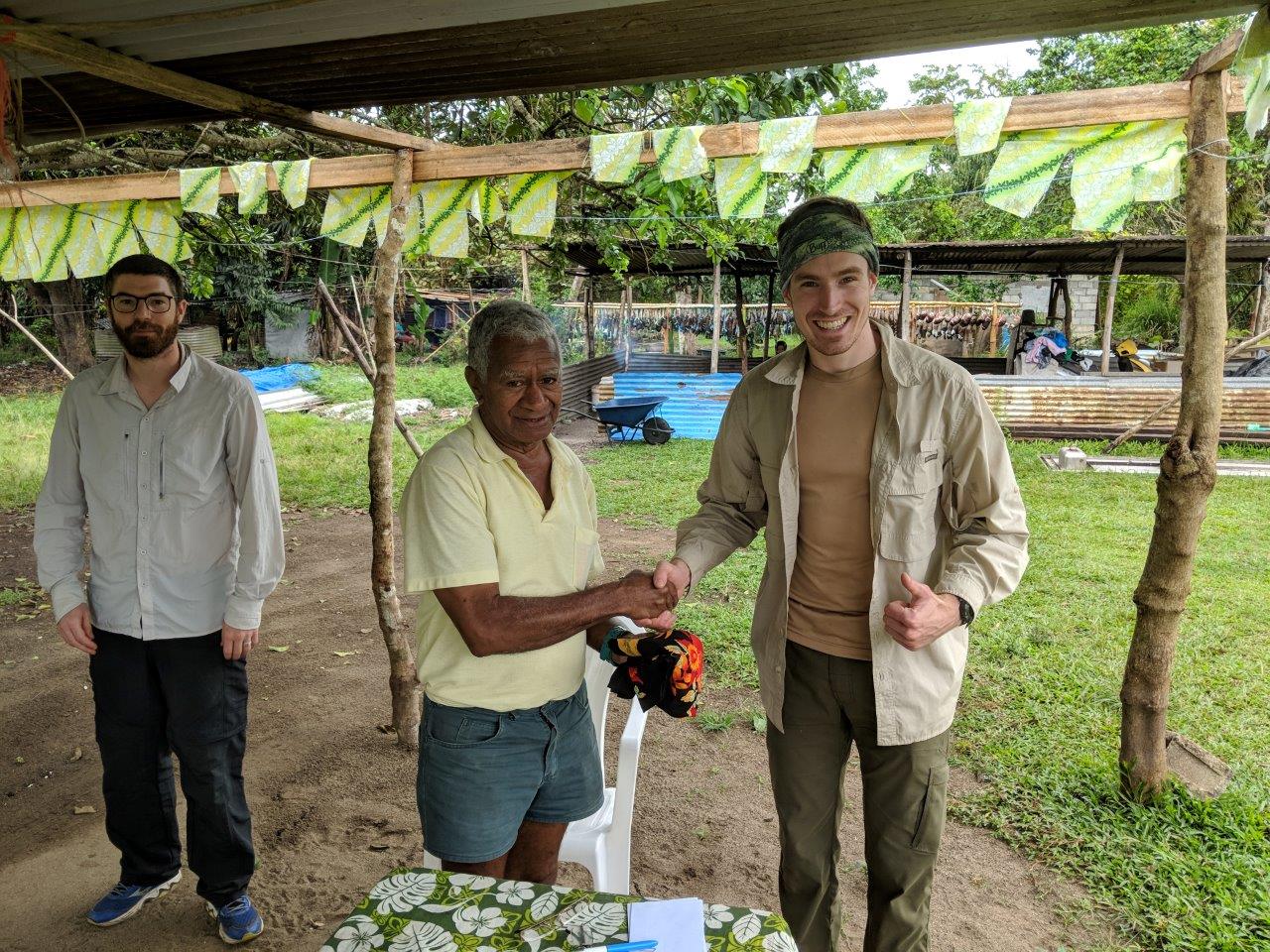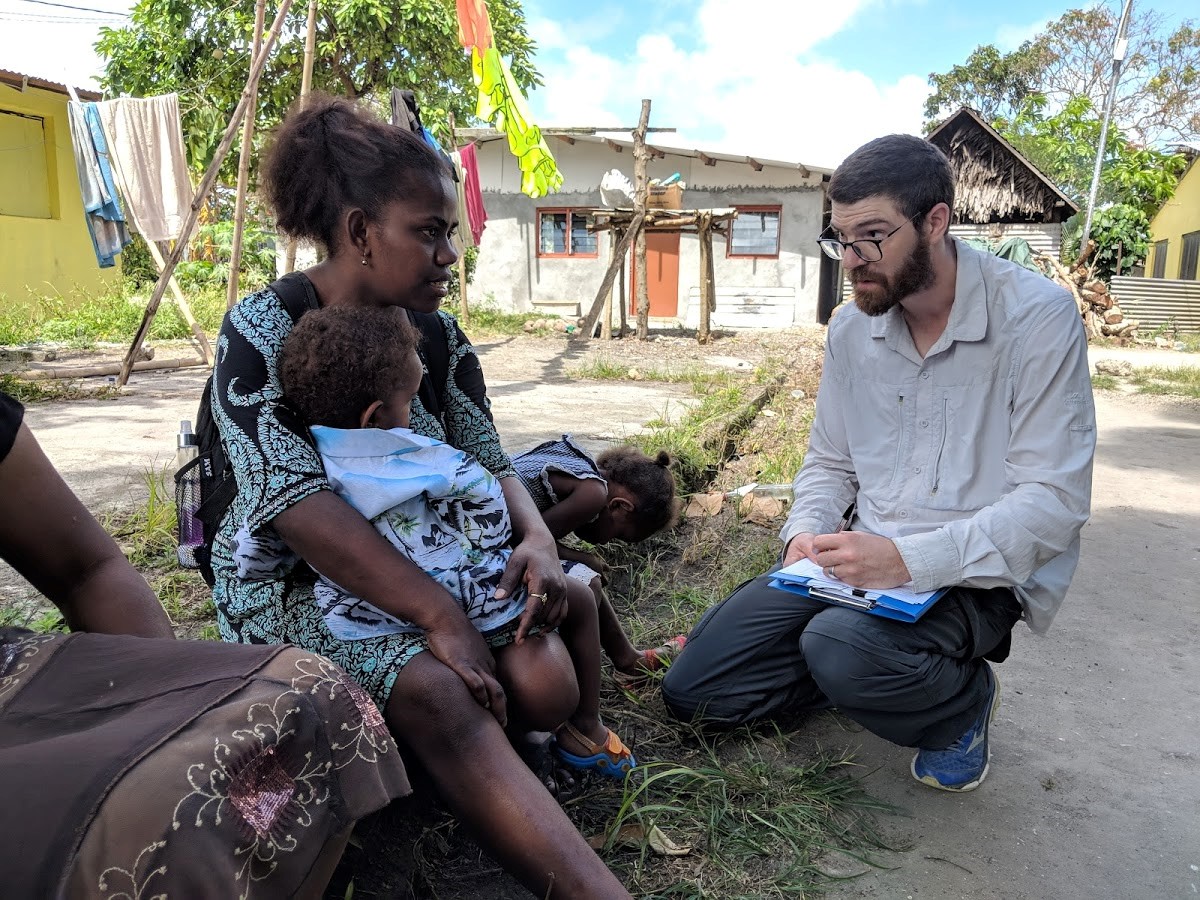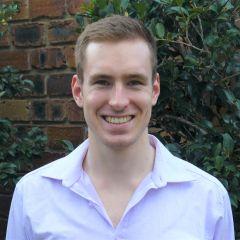 I recently had the good fortune to embark on an expedition to pilot-test the generalisability of my research to small scale societies.
I recently had the good fortune to embark on an expedition to pilot-test the generalisability of my research to small scale societies.
Alongside Drs Barnaby Dixson (UQ) and Henry Dixson (University of Auckland), I spent two weeks gathering data in Mele, a peri-urban village in Vanuatu. Across this time, I was exposed to the methodologies, complexities, frustrations and joys inherent to this unique form of research. I have summarised such experiences, and the lessons I learnt from them, from retrospective extensions to three main journal entries I kept while in the field. I hope this will provide a small insight into this valuable and rewarding form of research, and inspire others to take advantage of any opportunities to incorporate it into their candidature.
Wednesday 4 September, 10am
Barnaby, Henry and I sat slouched on a wooden bench, intermittently gazing between our phones and the thatched roof above. The atmosphere was a mix of sweat, boredom and uncertainty. We were waiting for Chief Poilapa of Mele to give us clearance to collect data in his village. We already held authorisation from the Vanuatu Cultural Centre, the governing body of research for the entire nation, but Chief Poilapa still had the power to derail the entire operation at his will.
As 20 minutes turned into 40, we began to seriously question our chances. It had been two days since we touched down in Vanuatu, and we didn’t have a single piece of data to show for it. We’d invested a considerable amount of time, money and effort to arrive at this point. Denial of permission from the chief would require a Plan B we didn’t have. Just as we were starting to worry we were out of luck, the chief returned, clutching a camera in one hand and personalised letter of welcome in the other. The last hurdle had been cleared. Data collection had just been given the green-light.
Aligning authorities to ensure data collection proceeds smoothly is a time-consuming process, but the alternative of ignoring it would be to transgress strong and well respected-customs. Such an act would carry considerable consequences for the project and potentially our welfare.
"Budget plenty time to gain the proper permissions before your project begins."
Wednesday 7 September, 1am
I awoke to an unpleasant, and highly familiar feeling in my gut. The local bacterial colonies had staged a snap-assault on my intestines, and my body was taken by surprise. I spent the next 24 hours gingerly recovering, and attempting to hold down water without inundating my room with a tsunami of effluent.
Village life also took a psychological toll. Continually asking questions and interpreting answers in a foreign dialect made for a weary mind at close of business. Furthermore, the quantity and ill health of stray animals, and the disciplinary approach taken towards children was disheartening. Seeing children hit for innocuous behaviours and being powerless to intervene was the most significant source of frustration from the entire trip.
"Field research is physically and psychologically draining. Allow time for rest and be prepared for the eventuality of illness."
Saturday 15 September, 12pm
The road out from Mele village was long. We were walking down it for the final time, and my hand was constantly waving. The three of us had become an accepted part of the daily village proceedings. We weren’t Man long Mele (people of Mele), but we were welcome visitors, and for us, that was more than enough.
Locals showed us their gardens, explained their way of life, welcomed us into their homes and offered us an abundance of fruit. Not a single person refused to respond to our questionnaires over the period of data collection. The Ni-Vanuatu people were undeniably the most beautiful feature the country had to offer. Leaving was an experience of emotional conflict, reflecting the duality of a physiologically draining yet interpersonally warm and hospitable environment.
"Field research is rewarding beyond expectations."
Cross-cultural fieldwork certainly isn’t for everyone. It’s dirty, confronting and challenging at times. If fieldwork is done right, with an acceptance of the negatives involved, an enormous amount of insight into human behaviour can be gained—insight from perspectives that can never be found in a university classroom. For this to happen, it must be seen as far more than a matter of data collection. It should be an exercise in anthropology, ecology and history, with a holistic and inductive approach. If you are respectful and show a genuine interest in the lives and activities that characterise the people you are studying, they will relish the opportunity to share them with you.
Study at UQ
Find out more about the Master of Psychology at UQ.

